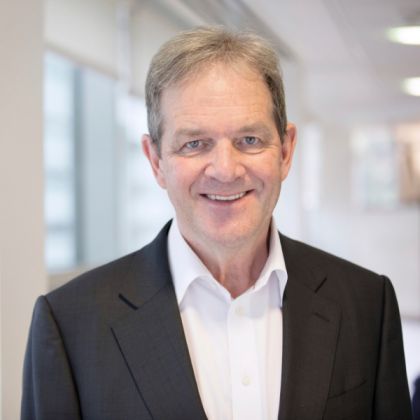A Message from our outgoing Chair
Posted on
 It has been a great privilege and pleasure to be the ACP Chair over the past five years. During this time advances in cancer medicine have continued at great pace with personalised medicine immunotherapy therapy extending the roles into virtually every type of cancer where these treatments have proved transformative resulting in longer periods of disease control and containment and eradication of cancer in many patients. During the next five years the advancements in clinical science will continue to improve cancer outcomes. But many challenges remain and we need a much greater focus on prevention of disease and the use of blood tests to facilitate early diagnosis of cancer in the community in both low and high risk populations. Circulating tumour DNA shows great promise both in early diagnosis and in detecting recurrent disease or resistant disease at a point at which our interventions are more likely to be associated with a positive outcome. Artificial intelligence deep learning and neural networks are expected to improve data analysis that may ultimately inform the oncologist’s clinical practice.
It has been a great privilege and pleasure to be the ACP Chair over the past five years. During this time advances in cancer medicine have continued at great pace with personalised medicine immunotherapy therapy extending the roles into virtually every type of cancer where these treatments have proved transformative resulting in longer periods of disease control and containment and eradication of cancer in many patients. During the next five years the advancements in clinical science will continue to improve cancer outcomes. But many challenges remain and we need a much greater focus on prevention of disease and the use of blood tests to facilitate early diagnosis of cancer in the community in both low and high risk populations. Circulating tumour DNA shows great promise both in early diagnosis and in detecting recurrent disease or resistant disease at a point at which our interventions are more likely to be associated with a positive outcome. Artificial intelligence deep learning and neural networks are expected to improve data analysis that may ultimately inform the oncologist’s clinical practice.
During my 5 years the Covid-19 pandemic had a devastating effect on cancer patients and particularly those with haematological malignancies and immunosuppression had a much higher morbidity and mortality than the general population. During the pandemic the ACP worked closely with colleagues in the Royal College of Radiologists and the Department of Health to develop guidelines on a day to day management of patients with cancer. These proved to be very successful and meant that patients could be managed more effectively including enhanced isolation and the introduction of antiviral agents.
As we come through the pandemic the greatest challenge is the backlog that exists for patient care across the NHS and ultimately how this impacts on cancer patients. Early diagnosis has been particularly affected and many oncologists report seeing cases at a much later stage than in the pre-pandemic period.
The ACP had an important role in persuading the GMC that oncologists should not participate an unselected medical take and that instead we should focus on developing acute oncology services managing newly diagnosed patients with cancer and those who develop side effects related to the treatment or disease. As physicians we felt that this was the best way to contribute to the enormous workload that faces all acute medical services. As part of this we have continued to galvanise our links with clinical oncology and the Royal College of Radiologists, both groups recognising the benefits that this would bring to patient care, oncological strategy, training and presenting ourselves as one voice to the Government and the Department of Health. Professor Peter Selby our Emeritus president has worked tirelessly through the Closer Working Group to achieve these objectives.
So in many respects these have been tumultuous times but witnessing the progress of cancer medicine over the past 20 years has for me been an incredible experience that started as an SHO in the wards of the Royal Infirmary in Glasgow many moons ago. During this time we have gained insights into the biology of cancer that has resulted in so many treatment advances. Hopefully with all these advances many of our patients now live with cancer but in doing so they need the support of cancer physicians working within multidisciplinary teams and it is imperative that we continue to expand the specialty so that we can continue to provide high quality care to our patients. The future of medical oncology in the UK is more secure than ever and I have been particularly impressed by our group of trainee medical oncologists and recently appointed consultant medical oncologist who are an incredibly gifted group of individuals and whom I am confident will continue to drive the specialty forward in the coming years.
I would like to take this opportunity to thank all my colleagues both past and present for the incredible support given to me in my role as ACP Chair and of course Alison Norton our secretary - the heart and soul of the ACP.
Professor David Cunningham MD FRCP OBE
